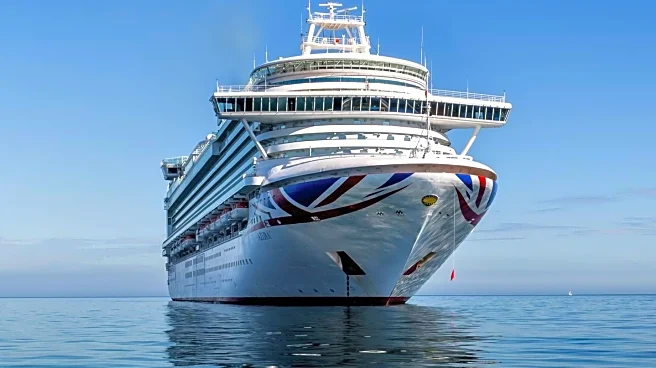What's Happening?
Mario Salcedo, a millionaire in his seventies, has spent the last 25 years living aboard cruise ships, completing his 1,000th voyage with Royal Caribbean. Known as 'Super Mario' among crew and passengers, Salcedo has become a fixture in the maritime community,
living a lifestyle that defies conventional norms. He left his job in international finance in 1997 and has since managed investment portfolios from his cruise ship cabin, spending approximately $101,000 annually on cruise fares. Despite the assumption that his life is a retirement fantasy, Salcedo continues to work, leveraging his Pinnacle Club membership for perks like complimentary Wi-Fi and priority boarding. His lifestyle challenges traditional ideas about aging and home, offering a unique perspective on autonomy and mobility.
Why It's Important?
Salcedo's lifestyle highlights a growing trend among retirees considering long-term cruising as an alternative to traditional assisted living. This approach can be up to 30% less expensive annually than private senior living facilities, offering social interaction, routine, and physical activity. Salcedo's story also underscores the potential for 'intentional unrooting' as a post-career trend, especially for professionals with remote income streams. As housing and healthcare costs rise, long-term cruising might become a viable option for more retirees, challenging conventional retirement models and influencing future housing and healthcare policies.
What's Next?
Salcedo's unique lifestyle may inspire more retirees to consider long-term cruising, potentially influencing the cruise industry to cater to this demographic. As more individuals explore this option, cruise lines might expand their offerings to include more amenities and services tailored to long-term residents. Additionally, the trend could prompt discussions among policymakers and industry leaders about the implications for retirement planning and healthcare access, potentially leading to new models for senior living that prioritize mobility and autonomy.
Beyond the Headlines
Salcedo's experience with mal de débarquement syndrome (MdDS) highlights the neurological impact of constant life at sea, raising questions about the long-term effects of such a lifestyle. The condition, which makes stable ground feel disorienting, is rare and poorly understood, emphasizing the need for further research into the neurological adaptations of chronic cruisers. This aspect of Salcedo's story adds a layer of complexity to the discussion about long-term cruising as a retirement option, suggesting that while it offers freedom and adventure, it also comes with unique health considerations.















